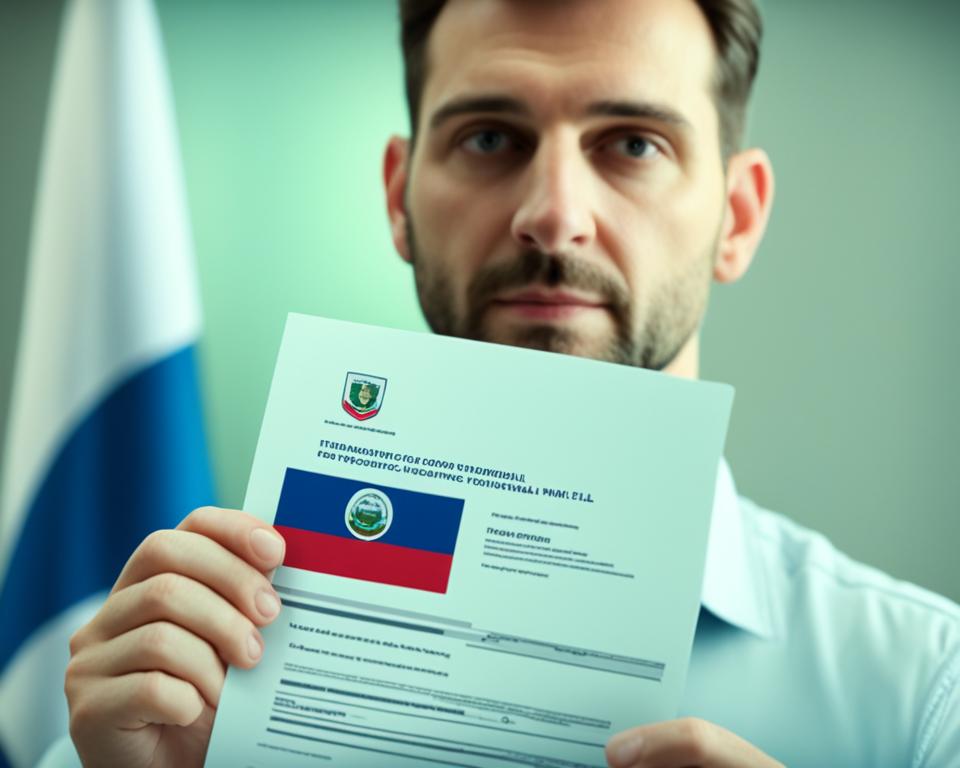Life Insurance and Wills in Costa Rica Explained
More and more retirees and expats are moving to Costa Rica’s sunny shores. This means they need to plan their estates better than ever. If you live in Costa Rica or have moved there, it’s key to understand life insurance and wills. This knowledge helps protect your assets and make sure your loved ones are taken care of.
But what are the main differences between planning estates in Costa Rica for locals and expats? It’s important to know these differences to make the right choices for your situation.
Key Takeaways
- Thousands of retirees move to Costa Rica annually, leading to complex legal issues for those who pass away in the country.
- Owning assets in Costa Rica requires a will drafted in Spanish and signed before a Notary Public and 3 witnesses.
- Without a local will, heirs may face a lengthy 6-month to 2-year probate process in Costa Rica.
- Advance Health Care Directives and Living Wills are not recognized in Costa Rica.
- Enforcing a foreign will in Costa Rica involves a complex process of recognition, certification, authentication, translation, and legal representation.
Understanding the Importance of a Costa Rican Will
Having a valid will in Costa Rica is crucial for estate planning. Wills from other countries don’t automatically cover assets in Costa Rica. And, a Costa Rican will doesn’t manage assets outside the country. To make sure your assets in Costa Rica go where you want, you need a will that meets local laws.
Why Your Foreign Will Does Not Apply to Costa Rican Assets
The Costa Rican Civil Code says foreign wills don’t affect assets in the country. This means your will from home won’t work for your Costa Rican stuff. To keep your wishes clear and make sure your assets go smoothly to your loved ones, you need a special will for Costa Rica.
Legal Requirements for a Valid Costa Rican Will
To make a will in Costa Rica that counts, you have to do a few things. First, it must be written and signed with a notary public there. This person makes sure the will is real. Also, you need at least three other people to witness the signing. If you skip these steps, the courts might not accept your will.
Knowing how to make a Costa Rican will and what it needs to be valid helps protect your assets. It’s important for everyone, whether you’re from the US, Spain, or somewhere else. Having a will that fits your needs in Costa Rica is key for your estate planning.
Inheritance Laws and Potential Heirs in Costa Rica
Knowing the inheritance laws in Costa Rica is key to making sure your wishes are followed and preventing family disagreements. If you die without a will, the Civil Code lists who can claim your assets in Costa Rica. This list includes your children, parents, spouse, grandparents, siblings, nephews and nieces, aunts and uncles.
Order of Priority for Potential Heirs Without a Will
- Your children
- Your parents
- Your spouse or domestic partner
- Your grandparents
- Your siblings
- Your nephews and nieces
- Your aunts and uncles
If you don’t have any of these relatives, your estate goes to local education boards in Costa Rica. This rule is meant to protect your closest family, but it might not match your wishes. That’s why a valid Costa Rican will is crucial to state how you want your assets to be shared.
The most you can inherit without paying taxes in Costa Rica depends on the value of the assets, not a set amount. Costa Rica doesn’t have inheritance or estate taxes. But, you might face taxes like capital gains and property taxes when planning your estate.
When it comes to how inheritance works in Costa Rica, the process changes with or without a will. Without a will, your assets go to your heirs in a specific order. But, with a valid Costa Rican will, your wishes are followed, and your assets are distributed as you want.
Inheritance money does not have to be declared in Costa Rica. It’s seen as a personal transfer of assets, not income. But, moving certain assets, like real estate, might still be taxed and go through legal steps.
Understanding inheritance laws and heirs in Costa Rica is vital for expats and those with assets there. Getting professional advice and having a valid Costa Rican will helps make sure your wishes are followed. It also reduces the chance of family disagreements.

Legalizing Partnerships and Protecting Your Significant Other
In Costa Rica, making your partnership legal is key to protecting your loved ones’ inheritance rights. You can formalize your civil union with a life partner before a judge, giving them the same rights as a spouse. This “convivencia de hecho” or “unión de hecho” needs at least three years of living together.
If you die without a will and have a legal union, your partner gets the same rights as a spouse. But, if you don’t have a will and haven’t made your union legal, your partner won’t automatically get anything. This shows why making your partnership legal is so important.
Costa Rica’s laws on inheritance and partnerships can be tricky, but knowing the process helps. By making your relationship official, you protect your partner’s future. This ensures a smooth transfer of your assets, even without a will.
It doesn’t matter if you’re an expat in Costa Rica or a local resident. You need to think about how your relationship affects your legal status. Talking to local lawyers can help you understand the process and document your wishes.

Knowing how legal partnerships affect inheritance in Costa Rica helps you make smart choices. This knowledge is key to securing your family’s financial future. Adding this to your estate planning means your loved ones will be taken care of, even after you’re gone.
Complications of Dying Without a Will in Costa Rica
Dying without a will in Costa Rica can cause big problems. These include family fights over who gets what and a longer, harder probate process. About 60% of people in Costa Rica die without a will, making it hard to share out assets and wealth.
Avoiding Family Disputes and Expediting the Process
Without a will, the estate goes by Costa Rica’s intestacy laws. This might mean the assets don’t go where the person wanted or to who they wanted. For example, stepchildren and unmarried partners might not get anything if there’s no will.
Not having an executor can also increase costs and cause more work. The court will pick someone to manage the estate. Also, picking guardians for minor kids needs a court order, which can be slow and uncertain for the kids.
Intestacy can lead to more paperwork and stress for families in Costa Rica. It can also cause fights among family members. This shows why having a will is so important for clear asset sharing.
To skip these issues and make inheritance smoother, having a detailed will in Costa Rica is key. It stops distant relatives from making claims and makes sure your true heirs get their share quickly.

Also, choosing beneficiaries for bank accounts and life insurance can help avoid probate in some cases. This makes things easier for your family later on.
Life Insurance and Wills in Costa Rica
Planning your estate in Costa Rica means thinking about life insurance and wills together. Expatriates, retirees, and those managing wealth across borders need to make sure their life insurance and wills match. This ensures everything goes smoothly after they pass away.
In Costa Rica, foreigners and locals have the same rights to inherit under the Civil Code. So, a will from your home country might not work for your assets in Costa Rica. You’ll need a special will for your property and assets in the country.
Working with a skilled lawyer is key to avoid legal issues and make sure your assets go where you want them to. They can help with strategies like offshore trusts for big assets or international wills for easier inheritance.
Aligning your expatriate life insurance and retirement planning with your cross-border estate strategies in Costa Rica is crucial. It helps protect your family’s financial future and prevents disputes later on.

The world of global wealth management is complex, especially with foreign laws. With the help of experts who know the specifics of life insurance and wills in Costa Rica, you can keep your assets safe and make sure your wishes are followed.
The Role of Notary Publics in Drafting Wills
In Costa Rica, the notary public, or “notario público,” is key in making a will. Unlike many places where lawyers do this, the notary public is vital here.
Cost Considerations for Establishing a Will
Setting up a will in Costa Rica has financial aspects to think about. The notary’s fee and government costs for registering the will can add up. If your will includes real estate, you’ll also need to consider transfer taxes.
To give you an idea, Gap Real Estate explains that real estate commissions in Costa Rica can reach up to 10% of the sale price. Usually, the seller pays the full commission, unless the buyer agrees to split it. Gap Real Estate charges only 6%, which is lower than the market average.
Getting bank finance in Costa Rica can be tough, especially for foreigners not living there permanently. But, for full real estate support, Gap Equity Loans, a sister company of Grupo Gap, helps with financial aid for private investors.
Knowing the costs of making a will in Costa Rica helps people plan better. This way, they can make sure their estate planning is done right.

Alternative Estate Planning Options: Trusts
While a will is the main way to plan estates in Costa Rica, trust funds are another choice for valuable assets like real estate. A trust in Costa Rica means moving assets to a trust managed by a bank or escrow agency, not under one person’s name. This method has benefits like setting conditions for inheritance and controlling how assets are given out.
Using a trust in Costa Rican estate planning can protect your assets internationally. Trusts can protect your wealth from creditors, lawsuits, and other legal issues. This makes them a good option for expats in Costa Rica.
Trusts also help avoid family fights and make passing on assets smoother. By setting clear rules for inheritance, you can prevent disputes and speed up the process. This is very useful if something happens to you.
For those looking at other estate planning options in Costa Rica, offshore trusts are an option. With the help of a skilled lawyer, you can create a trust that meets your financial and personal needs. This can be a strong backup or alternative to a traditional will.

Recognizing Foreign Wills in Costa Rica
If you have a will from another country, you can have it recognized in Costa Rica. But, it’s a complex process that involves the country’s legal system. This section explains the “exequatur” process. It’s key to making a foreign will valid in Costa Rica.
The “Exequatur” Process for Foreign Judgments
The exequatur process means getting a judgment from a Costa Rican court. It also means translating it into Spanish and getting it recognized by the Supreme Court. This makes the foreign will legal in Costa Rica, allowing it to manage assets and distribute inheritances.
- Get a judgment from a Costa Rican probate court that recognizes the foreign will.
- Certify the judgment with the right authorities in the country where it was made.
- Translate the certified judgment into Spanish, Costa Rica’s official language.
- Apply for the foreign judgment to be recognized by the Supreme Court of Costa Rica.
This process takes time and is complex. So, it’s important to work with an experienced international estate planning lawyer. They can make sure your foreign will is correctly integrated into Costa Rica’s laws.

It’s key to understand how inheritance and taxes work in Costa Rica for expat estate planning. By going through the exequatur process, you can make sure your international will is recognized. This helps protect your global family wealth.
Conclusion
This guide has covered the complex topics of life insurance and wills in Costa Rica. It showed why a Costa Rican will is crucial and how to follow inheritance laws. It also talked about legalizing partnerships and alternative estate planning options. Now, you know how to protect your assets and make sure your wishes are followed in Costa Rica.
It’s important to talk to trusted professionals as you go through the legal process. This ensures your specific needs are met.
If you’re a expatriate or a foreign investor in Costa Rica, this guide has given you key insights. You now know about estate planning and life insurance in the country. You understand the tax implications, residency requirements, and legal considerations.
This knowledge helps you make a detailed financial plan. It ensures your wealth will be passed on smoothly to your loved ones.
The estate planning process in Costa Rica is complex. But, with the right legal expertise and bilingual services, you can use offshore asset protection strategies and international life insurance options. Stay ahead by updating your estate plan as things change and laws evolve. This way, you protect your financial legacy for the future.
FAQ
Why is it important to have a Costa Rican will?
What are the legal requirements for a valid Costa Rican will?
What happens if I die without a will in Costa Rica?
How can I protect my significant other if I die without a will?
How do life insurance and wills interact in Costa Rica?
Can I use a foreign will in Costa Rica?
Source Links
- https://livingcostarica.com/costa-rica-living/get-a-will-in-costa-rica-and-save-your-heirs-lots-of-trouble/
- https://crie.cr/estate-planning-for-expats-in-costa-rica/
- https://www.news.co.cr/everything-you-need-to-know-about-planning-your-will-in-costa-rica/79579/
- https://www.specialplacesofcostarica.com/blog/why-you-need-a-costa-rican-will/
- https://crie.cr/will-and-life-insurance-in-costa-rica/
- https://crie.cr/creating-a-will-for-property-in-costa-rica-with-crie-cr/
- https://www.gapequityloans.com/en/will-and-life-insurance-in-costa-rica/
- https://www.garrolaw.com/everything-you-need-to-know-about-planning-your-will-in-costa-rica/
- https://willscostarica.com/
- https://crlaw.info/faq/
- https://quatro.legal/expats/
- https://www.simple-legal.consulting/residencies-type-in-costa-rica
- https://advisingfamilies.org/canada/information-portal/planning-ahead/risks-not-making-will/
- https://costaricafire.com/finance/creating-a-new-estate-plan/
- https://academic.oup.com/book/36143/chapter/314393978
- https://www.angloinfo.com/how-to/costa-rica/money/wills-inheritance
- https://osatropicalproperties.com/blog/insurance-in-costa-rica-get-to-know-the-basics
- https://ticotimes.net/2021/08/14/inherit-property-costa-rica
- https://www.gaprealestate.com/about-us/
- https://www.costaricaguide.co.cr/real-estate/buying-process/purchasing-real-estate.html
- https://lawxpertscr.com/author/daniela/
- https://www.costarican-american-connection.com/blog-categories/legal-and-financial
- https://www.gaprealestate.com/list-my-property/
- https://trustandwill.com/learn/dying-abroad
- https://wilsonlawgroup.com/spring-cleaning-time-to-clean-up-your-estate-plan/
- https://www.infinitysolutions.com/blog/will-writing-estate-planning/how-life-insurance-can-be-a-useful-estate-planning-tool/
- https://www.gaprealestate.com/differences-between-open-and-exclusive-listings-in-real-estate/
- https://www.gaprealestate.com/understanding-open-listings-in-real-estate-in-costa-rica/
- https://www.gapequityloans.com/en/will-and-life-insurance-in-costa-rica-2/
- https://www.gov.uk/guidance/notarial-and-documentary-services-for-costa-rica-and-nicaragua
- https://costaricalaw.com/faqs/
- https://crie.cr/asset-loss-in-costa-rican-wills-avoiding-pitfalls/
- https://ticotimes.net/2022/03/15/costa-rica-real-estate-closing-process-and-costs
- https://flamingobeachrealty.com/what-are-the-competitive-closing-costs-in-costa-rica-real-estate/




